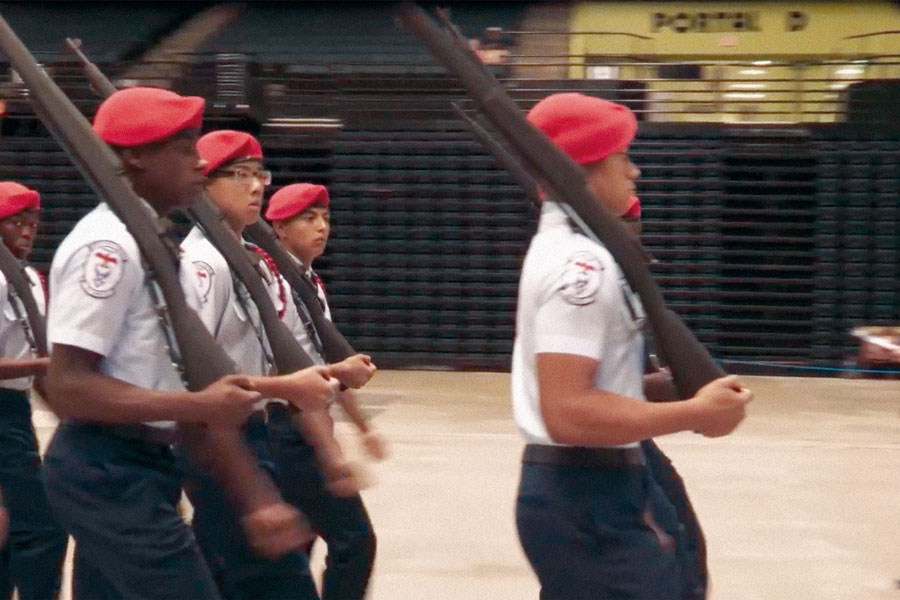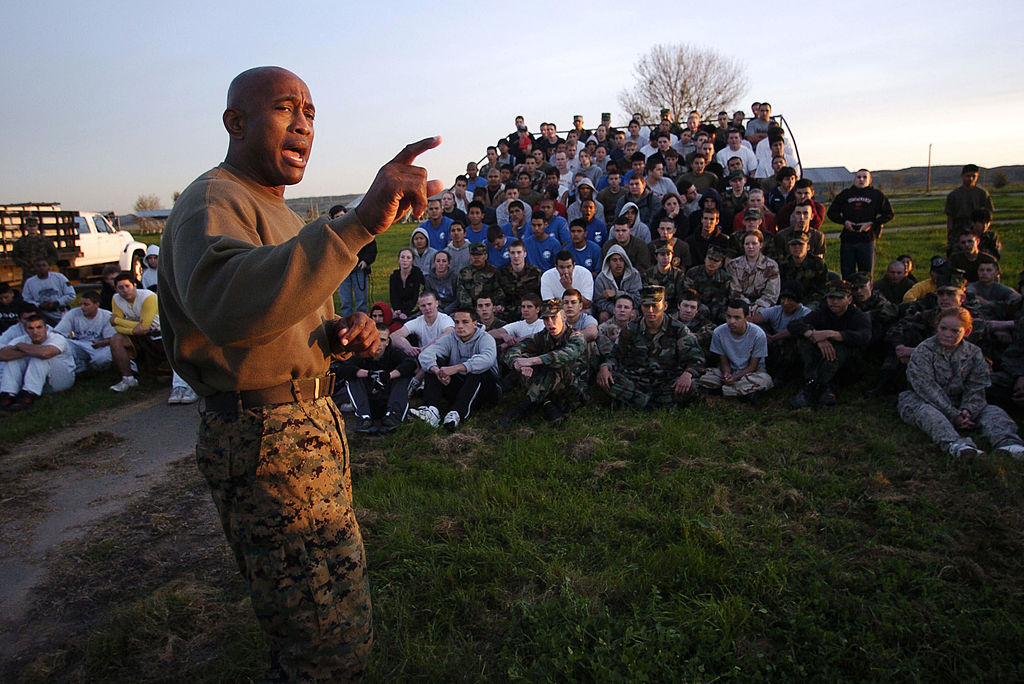AN INTERVIEW WITH
Nancy Cruz, Barbara Harris, Rick Jahnkow, and Seth Kershner | Originally Published in Jacobin Magazine on October 18, 2019

SK
The National Defense Act of 1916 created the Reserve Officers’ Training Corps (rotc), which operates at the university level, along with Junior rotc, which operates at the high school level. At first, JROTC was kind of like rotc’s unwanted stepchild. There were only a couple hundred JROTC units across the country until the mid-1960s.
The program really started to expand in earnest once the draft ended in 1973. Between 1971 and 1974, enrollment in Army JROTC increased by 21 percent, Air Force JROTC increased by 50 percent, and Navy JROTC increased by more than 100 percent. High schools became the answer to the Pentagon’s manpower problems.
BH
Anyone under the age of eighteen should not be recruited or be part of the military system. I believe this is a United Nations protocol, and in my view the United States doesn’t follow it.









